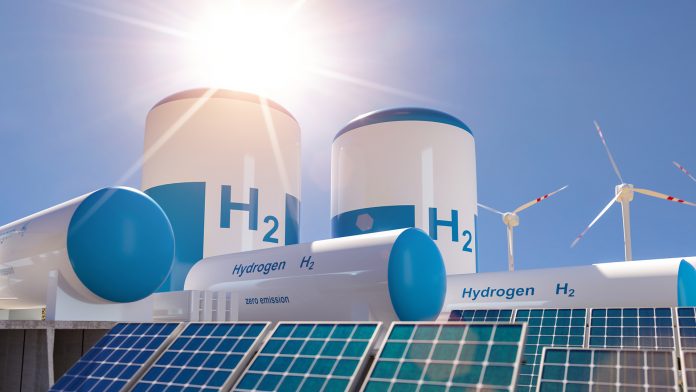Hydrogen fuel cells are rapidly becoming a significant player in the pursuit of sustainable, clean energy. With global conversations shifting toward reducing our carbon footprint and mitigating the effects of climate change, renewable energy sources have taken center stage. Hydrogen, one of the most abundant elements in the universe, is now being harnessed as a powerful energy carrier. Unlike fossil fuels, hydrogen fuel cells produce energy with virtually zero emissions. But what exactly are they, and why are they being hailed as the next frontier in clean energy technology? This article explores the fundamentals, benefits, challenges, applications, and the future of hydrogen fuel cells to uncover whether they truly are the solution we’ve been waiting for.
The Science Behind Hydrogen Fuel Cells
At their core, hydrogen fuel cells operate on a simple yet fascinating principle of chemistry. A hydrogen fuel cell is an electrochemical device that converts hydrogen into electricity through a reaction with oxygen. This process involves a key component called the proton exchange membrane (PEM). Hydrogen is supplied to the anode side of the cell, where it is split into protons and electrons. The protons pass through the membrane, while the electrons are forced to travel through an external circuit, generating electricity. Meanwhile, these protons and electrons combine with oxygen on the cathode side to produce water as the only byproduct. The entire process is efficient, clean, and produces no greenhouse gases. Understanding the science behind hydrogen fuel cells highlights why they are considered such a promising alternative to conventional energy sources.
Advantages of Hydrogen Fuel Cells
The allure of hydrogen fuel cells lies in their numerous advantages. One major benefit is their environmental friendliness. Unlike combustion-based energy systems, fuel cells produce water and heat as byproducts, making them a zero-emission solution. Furthermore, hydrogen fuel cells are highly efficient, with energy conversion rates far surpassing those of traditional fossil fuel systems. Another advantage is the flexibility of hydrogen as an energy carrier. It can be produced using a variety of methods, including water electrolysis powered by renewable energy. This versatility ensures that hydrogen fuel cells can integrate seamlessly into existing energy infrastructures. Additionally, fuel cells operate quietly, making them suitable for various applications, from powering industries to providing electricity for residential areas. With the ability to decarbonize multiple sectors, hydrogen fuel cells are touted as a linchpin for a sustainable energy future.
Challenges and Obstacles
While the potential of hydrogen fuel cells is undeniable, their widespread adoption faces significant hurdles. One of the main challenges is the cost of production. Producing hydrogen through water electrolysis is still an expensive process, particularly if renewable energy sources are to be used. Additionally, fuel cells themselves require costly components, such as platinum catalysts, which drive up the manufacturing costs. Storage and transportation also present logistical problems. Hydrogen, being a highly flammable gas, requires robust infrastructure to ensure safety during transit and storage. Another concern is the energy-intensive process needed to produce hydrogen in the first place, which can undermine its sustainability unless renewable energy sources are consistently utilized. Addressing these barriers will be crucial in making hydrogen fuel cells both affordable and widely accessible.
Current Applications
Hydrogen fuel cells are already making waves in various industries, proving their versatility and potential. The automotive sector has been particularly active in adopting fuel cell technology. Companies like Toyota, Hyundai, and Honda have developed hydrogen-powered cars that produce zero emissions while offering longer ranges than traditional electric vehicles. Beyond transportation, fuel cells are being used to generate backup power for data centers, hospitals, and remote locations. Hydrogen-powered forklifts and buses have also seen increased deployment, especially in regions pushing for greener alternatives. Additionally, hydrogen is being explored for industrial applications, such as producing steel and chemicals with reduced carbon footprints. These real-world applications demonstrate that while hydrogen fuel cells are still in their growth phase, their influence is steadily expanding.
Future Prospects and Developments
The future of hydrogen fuel cells looks promising, largely due to ongoing advancements in technology and growing investments in clean energy research. Governments and private sectors worldwide are channeling substantial resources into boosting hydrogen production capabilities. Hydrogen hubs, regions focused on producing and distributing hydrogen, are being developed to create integrated supply chains and scale up deployment. Research is also being directed toward replacing expensive components like platinum catalysts with cheaper alternatives, potentially driving down costs. On the energy storage front, innovations aim to make hydrogen more stable and practical for long-term use. Meanwhile, global partnerships are emerging to standardize hydrogen fuel cell manufacturing and infrastructure development. If these trends continue, hydrogen fuel cells could become a dominant force in the global energy mix, redefining how we power our world.
Unlocking the Potential of Hydrogen Fuel Cells
The promise of hydrogen fuel cells is too substantial to ignore. They offer the opportunity to transition from a heavily polluting fossil fuel-based energy system to one that is cleaner, more efficient, and more sustainable. However, this potential can only be realized if we address the challenges of cost, infrastructure, and scalability. Collaborations between governments, industries, and researchers will be key to overcoming these barriers. For businesses and individuals alike, investing in hydrogen technology presents an opportunity to be at the forefront of the clean energy revolution. While there is still a long road ahead, hydrogen fuel cells are undoubtedly paving the way for a future where energy generation aligns with environmental stewardship.
FAQs
1. Are hydrogen fuel cells better than batteries?
Both technologies have their strengths. Hydrogen fuel cells offer longer ranges and quicker refueling times, making them ideal for heavy-duty transportation. Batteries, on the other hand, are more efficient for short distances and small-scale applications.
2. How is hydrogen produced?
Hydrogen can be produced through various methods, including natural gas reforming, water electrolysis, and biomass conversion. Electrolysis powered by renewable energy is the most sustainable option.
3. Are hydrogen fuel cells safe?
Yes, with proper safety protocols and infrastructure, hydrogen fuel cells are considered safe for widespread use. Fuel tanks are designed to withstand high pressures and prevent leaks.
4. What industries will benefit the most from hydrogen fuel cells?
Industries like transportation, manufacturing, and energy storage stand to gain significantly from this technology due to its efficiency and versatility.
5. Is hydrogen a renewable energy source?
Hydrogen itself is not an energy source but an energy carrier. When produced using renewable energy sources like solar and wind, it becomes a clean and sustainable option.




